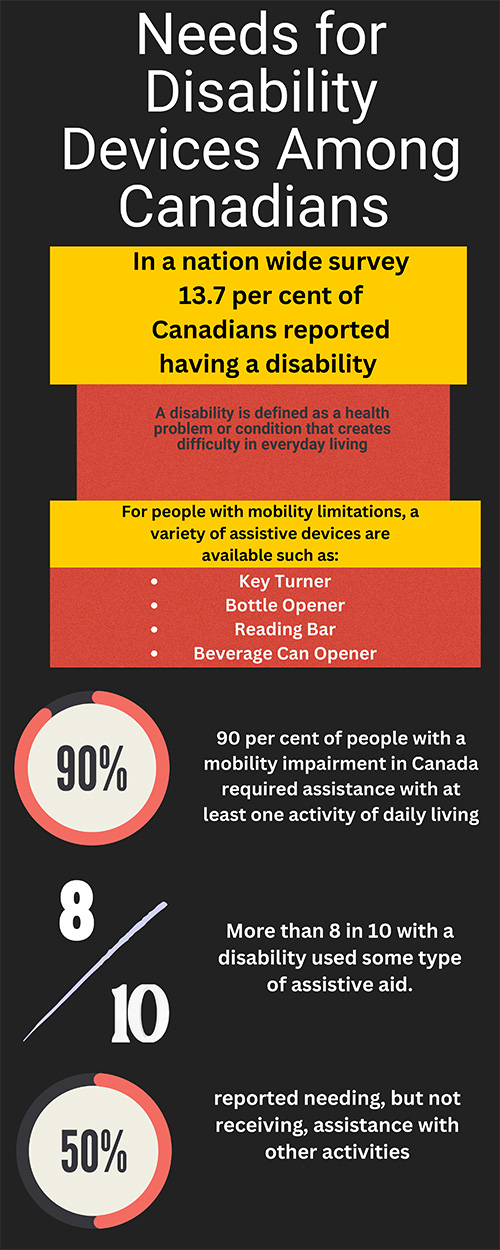
Langara Makerspace working to make accessibility aids more affordable
“This was a great first date with Langara, and I’m excited about the things to come,” said the director of Neil Squire Society
By Erin Conners
Specially designed devices can help people with disabilities in their day-to-day lives, but can also be prohibitively expensive. That’s why Langara’s Applied Research Club is working to help connect people with disabilities with affordable technology.
The club is part of a network of volunteers using open-source designs to produce devices that would be otherwise out of reach due to cost or availability. The project, called Makers Making Change, is a project of the Neil Squire Society, a national non-profit organization that helps Canadians with disabilities.
During two events in March, the Langara club used 3D printers in the Langara Makerspace program to create objects like bottle openers and key holders that are designed to assist people who have grip challenges.
“I would say this was a great first date with Langara, and I’m excited about the things to come,” said Chad Leaman, director of innovation at the Neil Squire Society. “Langara has a very modern, new maker space, and I think it gives us opportunities to look at how we fabricate some of our devices and perhaps improve our efficiency.”
“Being able to fabricate these things at the local level builds better capacity to better serve people with disabilities,” he said.
Making assistive devices through a program like this can often be 90 per cent cheaper than buying them through a store, Leaman said. Design work is done in collaboration with the disability community, he said, with designs then further customized for an individual’s specific needs.
Making this equipment more affordable and accessible is an important goal for the Neil Squire Society. In 2016, people with disabilities in B.C. experienced rates of poverty that were 42 per cent higher than those without disabilities, according to a study by University of Calgary researchers.
A great opportunity for Langara
Philip Robbins, faculty coordinator of Langara’s Makerspace, said that this work is a great fit for the Makerspace, which is a facility on campus with fabrication technology including 3D printers.
“Our ethos is make things better, so working with Neil Squire [Society] was perfect,” Robbins said.
Robbins said the events created an opportunity to go beyond the physical processes involved and teach people “about the ethics of what we’re doing and the opportunities that these technologies give us.”
Robbins is looking to work further with the Neil Squire Society to produce a wider variety of designs that use other equipment beyond the 3D printers, such as laser cutters or other machines in the Makerspace that could create better finished products.
“Right now, most of their devices are designed for the 3D printer,” Robbins said. “The 3D printer can make any shape, but it doesn’t necessarily do it in the best possible way, the most durable way, or the most efficient way.”


Comments are closed.